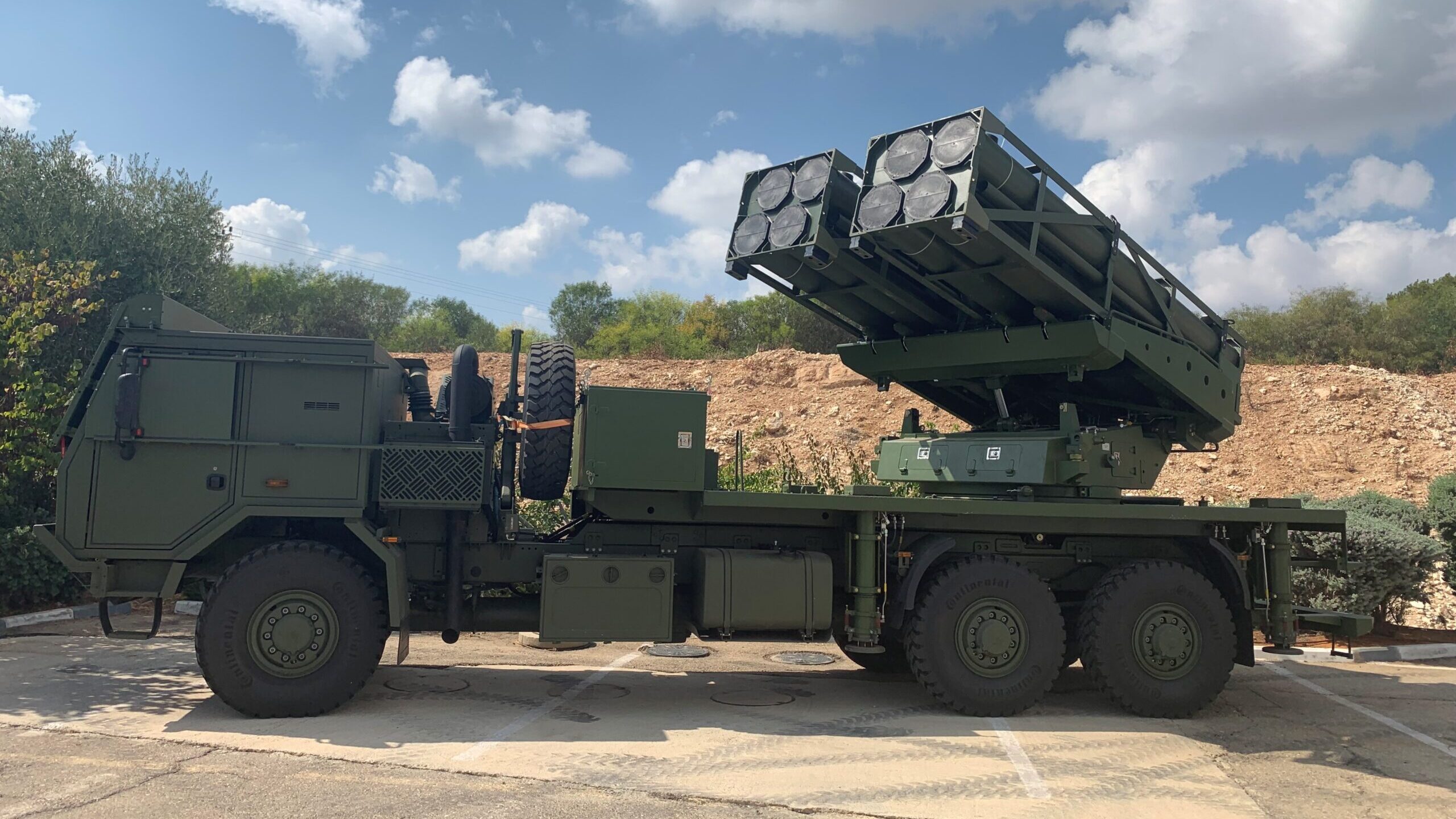ARIE EGOZI

TEL AVIV — Since the start of the war in Ukraine, ground-based artillery and rockets have seen a surge of interest, with NATO nations rushing to buy as many weapons as they can lay hands on.
So it makes sense that Israel’s Elbit Systems would see a spike of interest as well. “This war, without any doubt, accelerated the interest and it is now at an all-time peak,” Yehuda (Udi) Vered, executive VP and CEO of the Israeli company’s land division, told Breaking Defense in a recent interview.
“I can say without any doubt that artillery, specifically rockets, has gained its status as the queen of combat ” Vered added.
Israel, of course, makes regular use of long-range fires for strikes into Syria. In recent days there were two such attacks, with local Syrian reports claiming targets were hit by artillery launched from the Golan Heights. (Israeli does not confirm this kind of action officially, but Israeli sources that talked with Breaking Defense on condition of anonymity have noted that Israel has “the right tools” to perform such long-range accurate strikes.)
One expert told Breaking Defense that the accuracy of these systems is the reason why they were used in many of the IDF’s operations along the Israeli borders but also “far, far away from them.”
In many ways, ground-launched weapons are embedded in Elbit’s DNA. Years ago, the company purchased Israeli Military Industries (IMI), which had specialized in the capability but had not found much success as a company. “We found a very unique knowledge base that has been built for years but was limited by the lack of funds of the state-owned company. When we combined the knowledge with our resources, the results were obvious almost immediately,” Vered said.
The land division of Elbit is developing other weapon systems, based on existing “building blocks” and new ones. Some are made for the use of the IDF only, but many are aimed at the international market.
One such new weapon is the Predator Hawk, described by Elbit as a ground-to-ground rocket designed to destroy high priority targets in ranges of up to 300 km. According to the company, the supersonic weapon carries a 140 kg warhead. Vered emphasized the fact that the rocket’s navigation system can cope with GPS denial conditions. “Launch tests will start at the end of 2023 and deliveries in 2024,” he added.
Another capability in development is based off an existing system known as Rampage, an air-launched missile co-produced with Israel Aerospace Industries.
“We used this technology and, based on it, developed versions for ground and sea launch and they will become operational soon,” Vered said. “I cannot go into details but this will increase the flexibility of this missile in different arenas. The new version will have velocities of much higher than the speed of sound and longer ranges.”
A third capability Vered highlighted is the PULS, a launcher carried by a heavy truck and capable of launching different types of rockets to ranges of up to 300 km.
According to the official Elbit brochure “The multi-purpose launcher features two PODS; each POD is designed for a specific rocket type: the Accular 122mm (18 rockets) with a range of up to 35km, the Accular 160mm (10 rockets) with a range of up to 40km, the EXTRA (4 rockets) with a range of up to 150km and the Predator Hawk (2 rockets) with a range of up to 300km.”
Recently it was reported that the Royal Army of the Netherlands is going to equip its ground unit with the Elbit system.
Elbit has taken this system some steps forward and recently unveiled the Light PULS. This according to the company is a “lightweight airborne version rocket launcher system developed to meet the battlefield challenges of Special Forces operating in remote, high-risk locations that are beyond the range of traditional artillery fire support.” Elbit says that this version can carry up to 8 Accular 122mm guided precision rockets, with a range of up to 35km.
The company claims this light version can be transported by a C-130 or similar aircraft. Israeli defense sources say that the US subsidiary of Elbit is evaluating its potential in the American market. Vered did not mention this system in the context of the US market but says the local subsidiary is “evaluating the potential sales of different systems to the US armed forces.”
Speaking of Elbit’s US arm, Vered pointed out the importance of global sales to the company. In 2022 the division had 60 active contracts in 60 countries around the world for a long list of systems. “87 % of our backlog is for export. We are active in Europe, Asia, the Middle East and the US,” he said.
“One good example for future growth is our teaming agreement with BAE that was formed to compete for the potential market created by the demand for a very advanced weapon turret to be carried by the Bradly replacement – OMFV,” he added. “If our team is selected to move forward on the OMFV , the turret will be manufactured in the US based on our vast knowledge we gained by supplying similar systems to Israeli made APC’s, mainly the eight-wheeled Israeli-made Eitan.”
Outside of land-based weapons, Elbit is also working on upgrades for its air-launched weapons.
One good example is the Delilah air-launched missile. This platform was originally developed as an air decoy, but through the years became one of Israel’s most advanced air-launched weapon systems. According to foreign media reports this weapon system has been used in many Israeli air strikes against targets in Lebanon and Syria. According to the company, this missile, also described as a loitering weapon system, can be launched from fighter aircraft, helicopters, ships and also from the ground. The system reportedly has a 250 km range and carries a 30 kg warhead.
No comments:
Post a Comment